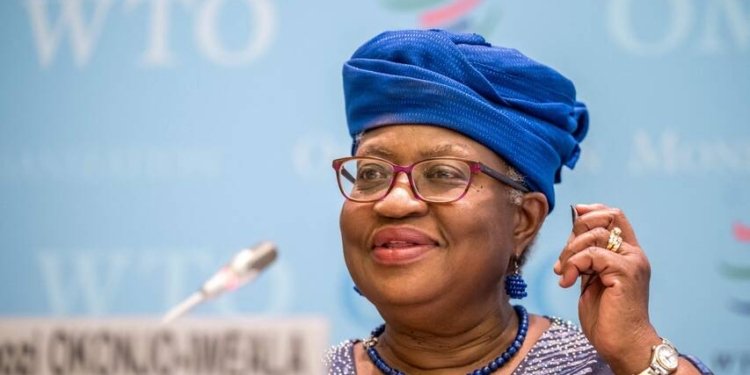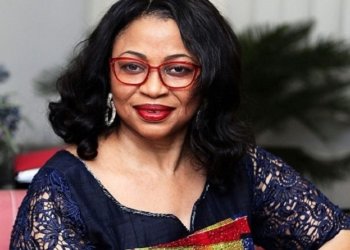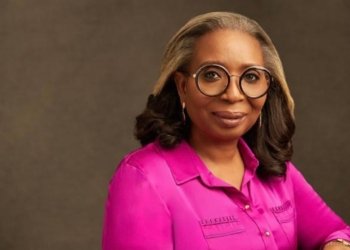What does it take to become the first woman and first African to lead the World Trade Organization? This groundbreaking economist’s journey reveals the answer.
Ngozi Okonjo-Iweala has shattered glass ceilings throughout her remarkable career. She currently serves as Director-General of the WTO, making history with her appointment.
Her expertise stems from a 25-year career at the world bank, where she rose to Managing Director of Operations. This experience gave her deep insight into global economic systems.
She also served twice as Nigeria’s finance minister, implementing crucial economic reforms. Her leadership helped stabilize the nation’s economy during challenging times.
This Nigerian economist’s achievements extend beyond government roles. She has held influential positions across corporate and non-profit boards worldwide.
Key Takeaways
- Ngozi Okonjo-Iweala made history as the first woman and first African WTO Director-General
- She built extensive expertise through a 25-year career at the World Bank
- Her two terms as Nigeria’s Finance Minister involved significant economic reforms
- She broke barriers as the first woman to hold both Finance and Foreign Minister positions in Nigeria
- Her educational background includes degrees from Harvard and MIT
- She has authored several books on economics and anti-corruption efforts
- Her leadership has received numerous international awards and recognition
Introduction to a Trailblazing Leader
A career spanning more than 40 years has positioned this economist as a trusted voice in global financial matters. Her expertise extends across five continents, making her one of the most internationally experienced leaders in economics today.
Ngozi Okonjo-Iweala built her reputation through hands-on work in Asia, Africa, Europe, and the Americas. This diverse experience gave her unique insights into different economic systems and challenges.
Governments and stakeholders worldwide trust her as an honest broker. She has successfully negotiated numerous agreements that benefit all parties involved.
Her ability to build consensus between developed and developing nations sets her apart. This skill has been crucial in her current role shaping global trade policies.
Before leading the WTO, she chaired Gavi, the Vaccine Alliance. This position demonstrated her expertise in global health and development issues.
During the COVID-19 pandemic, she served as Special Envoy for the African Union. Her leadership helped coordinate the continent’s response to the health crisis.
From development economist to managing director roles, her journey shows steady growth. Each position built upon previous experiences, creating a comprehensive leadership profile.
As the first woman to lead the World Trade Organization, she continues breaking barriers. Her educational background from top institutions prepared her for these global challenges.
Early Life and Academic Foundation
The foundation of global leadership often begins in childhood experiences and academic rigor. This economist’s journey started in Nigeria with royal heritage and progressed through America’s top educational institutions.
Family Background and Nigerian Roots
Born on June 13, 1954, in Ogwashi Ukwu, Nigeria, she grew up in a distinguished family. Her father served as the Obi (king) of the Obahai royal family, instilling early leadership values.
She attended Queen’s School in Enugu and International School in Ibadan for her secondary education. These institutions provided strong academic preparation for her future studies abroad.
Harvard University and MIT Education
In 1973, she began her American educational journey that would shape her economic perspective. She graduated magna cum laude from Harvard University with an AB in Economics in 1976.
Her academic excellence continued at the Massachusetts Institute of Technology. She earned a master’s in city planning in 1978 before pursuing doctoral studies.
She completed her PhD in regional economics development in 1981 from MIT. Her dissertation focused on credit policy and rural financial markets in Nigeria’s agricultural sector.
An international fellowship from the American Association of University Women supported her doctoral research. This early work demonstrated her commitment to addressing economic challenges in developing nations.
Her education at these prestigious institutions provided the analytical tools for global economic leadership. The combination of theoretical knowledge and practical focus prepared her for future international roles.
World Bank Career: A 25-Year Tenure
A quarter-century at one institution built the foundation for global economic leadership. Her journey at the world bank transformed her from development economist to international policymaker.
Starting in Washington D.C., she quickly demonstrated exceptional analytical skills. Her work focused on economic development across multiple continents and challenging environments.
Rise to Managing Director of Operations
Through consistent excellence, she ascended to the number two position at the institution. As managing director of Operations, she oversaw an $81 billion portfolio.
Her responsibilities spanned Africa, South Asia, Europe, and Central Asia. This regional diversity provided deep insight into different economic challenges and solutions.
The position required balancing complex stakeholder interests across nations. She developed innovative approaches to development financing during this period.
Initiatives During Global Crises
When global food prices soared in 2008-2009, she spearheaded emergency response programs. These initiatives protected vulnerable populations from hunger and economic collapse.
During the financial crisis, she designed interventions to stabilize developing countries. Her programs helped nations maintain economic growth despite global turbulence.
In 2010, she chaired the IDA replenishment that raised $49.3 billion. This historic funding supported the world’s poorest nations through critical development projects.
She also contributed to the Commission on Effective Development Cooperation with Africa. This work helped shape better partnerships between African nations and development partners.
Her World Bank experience created the perfect preparation for future leadership roles. The technical knowledge and diplomatic skills gained proved invaluable in later positions.
Transformative Leadership as Nigeria’s Finance Minister
When a country faces overwhelming debt burdens, visionary leadership can create financial liberation. This economist’s service as finance minister transformed Nigeria’s economic landscape through courageous reforms.
She served two groundbreaking terms from 2003-2006 and 2011-2015. Her appointment marked the first time a woman held this powerful position.
Historic Debt Negotiations with the Paris Club
The Paris Club debt negotiations represented her most significant achievement. She secured the elimination of $30 billion in national debt through skilled diplomacy.
This included an outright cancellation of $18 billion. The remaining debt was restructured on favorable terms.
This liberation from debt servicing constraints allowed new investment in critical sectors. It marked a turning point in Nigeria’s economic independence.
Transparency and Anti-Corruption Reforms
Fighting corruption dangerous practices became a central focus of her tenure. She implemented three revolutionary systems: GIFMS, IPPMS, and TSA.
These technologies identified and eliminated 62,893 ghost workers from government payrolls. The savings totaled $1.25 billion in public funds.
She introduced unprecedented transparency by publishing revenue shares. Federal, state, and local allocations became publicly available information.
Macroeconomic Management and Economic Growth
Her macroeconomic policies included an oil-price based fiscal rule. This created the Excess Crude Account to stabilize revenues during price fluctuations.
In 2006, she achieved Nigeria’s first sovereign credit rating. Both Fitch and Standard & Poor’s granted a BB- rating.
She established the Nigerian Mortgage Refinance Corporation in 2013. This stimulated housing development and economic activity.
Her leadership in GDP rebasing revealed Nigeria’s true economic size. This made the nation Africa’s largest economy overnight.
Ngozi Okonjo-Iweala’s tenure as minister finance demonstrated how technical expertise combined with political courage creates lasting change. Her reforms continue influencing Nigerian economic policy today.
Breaking Barriers at the World Trade Organization
Global trade leadership reached a historic milestone when Ngozi Okonjo-Iweala assumed the WTO’s top position. Her appointment marked a transformative moment for international economic governance.
Historic Election as First Female and African Director-General
Nigerian President Muhammadu Buhari nominated the accomplished economist in June 2020. Her candidacy gained immediate international attention.
The selection process advanced through multiple rounds of consultations. She reached the final stage against South Korea’s trade minister Yoo Myung-hee.
Initial opposition from the United States created temporary uncertainty. The situation changed dramatically with the new administration in early 2021.
Yoo Myung-hee withdrew her candidacy in February 2021. This cleared the path for a unanimous decision by the General Council.
On February 15, 2021, members appointed the first female and first African Director-General. She began her four-year term on March 1, 2021.
In November 2024, WTO members demonstrated continued confidence. They reappointed her for a second term through 2028.
Key Initiatives and Global Trade Leadership
The new Director-General immediately addressed pressing global challenges. Her leadership focused on modernizing trade rules for contemporary issues.
She prioritized concluding the fisheries subsidies negotiations. This represented the first major multilateral trade agreement in years.
COVID-19 response became an early focus area. She worked to ensure medical supplies reached nations in need.
Agricultural trade reforms received significant attention. She facilitated discussions between developed and developing nations.
Digital trade governance emerged as another priority area. Her team developed frameworks for e-commerce regulations.
The Director-General emphasized inclusive trade policies throughout her tenure. She advocated for greater participation by smaller economies.
Environmental sustainability became integrated into trade discussions. Her leadership connected climate goals with economic policies.
WTO reform efforts gained new momentum under her guidance. She balanced modernization with maintaining core principles.
Multilateral cooperation strengthened through her consensus-building approach. She bridged differences between member states effectively.
Board Memberships and Global Influence
Beyond government service, this economist’s expertise extends across corporate and nonprofit leadership roles. Her strategic guidance has shaped organizations addressing global challenges from multiple angles.
Corporate Boards: Twitter and Standard Chartered
The economist brought valuable perspective to major technology and financial institutions. She served on Twitter’s Board of Directors until February 2021.
Her resignation from Twitter coincided with the historic WTO appointment. This demonstrated her commitment to avoiding potential conflicts of interest.
Since 2017, she has served as Independent Non-executive member board at Standard Chartered Bank. This position leverages her deep understanding of emerging markets.
In 2020, she joined Danone’s Mission Committee. This role focuses on sustainable business practices and social responsibility.
Non-Profit Leadership: Gavi and Carnegie Endowment
Her nonprofit engagements reflect a commitment to global health and international relations. From 2016-2020, she chaired Gavi, the Vaccine Alliance.
This leadership position involved overseeing vaccine distribution to developing nations. Her tenure strengthened global health infrastructure before the COVID-19 pandemic.
She serves as board trustees member at the carnegie endowment for International Peace. This think tank focuses on global policy challenges and diplomatic solutions.
Additional roles include advisory positions with MINDS and Georgetown Institute for Women. She also contributed to the One Campaign and Rockefeller Foundation boards.
Her service extends to organizations like R4D, ARC, and the Earthshot Prize. Each role demonstrates her multifaceted approach to global development challenges.
Authorship and Intellectual Contributions
Beyond her groundbreaking leadership roles, this economist has established herself as a prolific author and thought leader. Her written works document practical solutions to complex economic challenges while sharing hard-won insights from decades of public service.
Books on Economics and Corruption
Her 2018 publication “Fighting Corruption is Dangerous” reveals the personal risks of anti-corruption work. The book details real experiences from her time as Nigeria’s finance minister.
She co-authored “Women and Leadership: Real Lives, Real Lessons” with Julia Gillard in 2020. This work examines the challenges women face in leadership positions worldwide.
Earlier publications include “Reforming the UnReformable: Lessons from Nigeria” from 2012. This book documents her governance reforms and economic transformation efforts.
Her 2003 work “The Debt Trap in Nigeria” analyzed sustainable debt strategies. She also co-authored “Chinua Achebe: Teacher of Light” with Tijan Sallah that same year.
Influential Articles and Publications
Her April 2020 article in foreign affairs titled “Finding A Vaccine is Only the First Step” addressed pandemic challenges. This piece demonstrated her foresight regarding global health distribution systems.
She published “Mobilizing Finance for Education in the Commonwealth” in 2019. This work focused on funding mechanisms for educational development.
Her 2015 foreign affairs article “Shine a Light on the Gaps” examined financial inclusion for African farmers. This piece highlighted barriers to agricultural financing across the africa world region.
In 2016, she authored “Funding the SDGs: Licit and Illicit Financial Flows from Developing Countries.” This research addressed sustainable development financing challenges.
These publications establish her as a leading voice in economic development literature. Her works combine academic rigor with practical policy experience.
Accolades and International Recognition
Global recognition has followed this economist’s trailblazing career across continents and institutions. Her work has earned prestigious honors from leading publications and academic establishments worldwide.
Prestigious Awards and Honors
Fortune magazine named her among the 50 Greatest World Leaders in 2015. This recognition highlighted her transformative impact on global economic governance.
TIME magazine featured her twice on their 100 Most Influential People list. She received this honor in both 2014 and 2021 for her leadership in international economics.
Foreign Policy recognized her as a Top 100 Global Thinker in consecutive years. Her inclusion in 2011 and 2012 acknowledged her innovative economic solutions.
Forbes magazine consistently listed her among powerful female leaders. She appeared seven times on their Top 100 Most Powerful Women list between 2011-2023.
The Financial Times honored her as one of 25 influential women in 2021. This recognition celebrated her breakthrough achievements at the WTO.
Euromoney awarded her Global Finance Minister of the Year in 2005. This prestigious award recognized her successful economic reforms in Nigeria.
In 2019, she achieved election to the American Academy of Arts and Sciences. This membership honors exceptional contributors to academic and intellectual life.
Nigeria awarded her the GCON honor in 2022, its second highest national recognition. She also received the CFR honor for her service to the nation.
Honorary Degrees from Global Institutions
Twenty-one universities have granted honorary degrees to this accomplished leader. These honors recognize her contributions to economics and global development.
Yale University, University of Pennsylvania, and Brown University are among her honorary degree providers. These Ivy League institutions celebrated her international impact.
Trinity College Dublin and Amherst College also awarded honorary degrees. These recognitions span both sides of the Atlantic Ocean.
The London School of Economics and University of Oxford granted honorary degrees. These British institutions acknowledged her work in global trade and development.
Additional honors came from Colby College and American University. This broad recognition reflects her multidisciplinary contributions to global progress.
Personal Life and Family
Behind every global leader stands a personal foundation that shapes their worldview and approach to leadership. This economist’s family life reflects the same balance and dedication evident in her professional career.
Marriage and Children
She married Ikemba Iweala, a respected neurosurgeon from Umuahia, Nigeria. Their partnership has spanned decades, creating a stable family environment.
The couple raised four accomplished children together. Their son Uzodinma Iweala became a celebrated author, following his own creative path.
Family achievements extend across multiple professional fields. This diversity reflects the values of education and excellence instilled at home.
Dual Citizenship and Global Identity
After decades working and studying in the United States, she became a US citizen in 2019. This decision reflected her deep connections to both nations.
She maintained her Nigerian citizenship, embracing dual status. This legal recognition matches her truly international life and career.
Her global identity combines cultural roots with worldwide experiences. This perspective informs her unique approach to international leadership.
Balancing global responsibilities with family commitments requires careful planning. She has demonstrated this balance throughout her demanding career.
Personal experiences contribute to her understanding of diverse perspectives. This background enhances her ability to bridge different cultures and economies.
Role in Global Health and Pandemic Response
When global health crises emerged, this economist’s expertise became crucial for international response efforts. Her background in economics and development positioned her perfectly to address pandemic challenges.
The African Union recognized her unique qualifications during the COVID-19 emergency. They appointed her as special envoy in 2020 to address economic impacts.
COVID-19 Special Envoy for AU and WHO
As covid-19 special envoy, she mobilized international support for African nations. Her work focused on securing financial assistance and medical resources.
The World Health Organization also appointed her as Special Envoy. This role involved accelerating access to COVID-19 tools and treatments.
She co-chaired the G20 High Level Independent Panel on financing pandemic preparedness. This position allowed her to shape future global health security frameworks.
Her economic background informed practical solutions for pandemic challenges. She understood both the health and financial aspects of the crisis.
COVAX Facility and Vaccine Advocacy
She played a foundational role in establishing the COVAX Facility. This initiative ensured vaccine access for low and middle-income countries.
Vaccine equity became a central focus of her advocacy work. She fought for fair distribution across developing nations.
She joined the Multilateral Leaders Task Force on COVID-19 vaccines and treatments. This group coordinated international efforts for medical solutions.
Her leadership helped bridge gaps between developed and developing nations. She ensured all countries received attention during the pandemic response.
These efforts demonstrated her commitment to global health security. They also showed how economic expertise applies to public health challenges.
Legacy and Impact on Global Economics
Global economic systems have been fundamentally improved through innovative approaches that prioritize both development and environmental stewardship. This economist’s work demonstrates how strategic policies can transform nations while protecting planetary resources.
Influence on Developing Economies
Trade serves as a powerful engine for poverty reduction in emerging markets. The Director-General firmly believes commerce can lift developing countries toward sustainable prosperity.
Successful debt relief negotiations created financial breathing room for economic growth. These achievements allowed nations to invest in critical infrastructure and social programs.
Transparency reforms became a cornerstone of economic transformation. Anti-corruption measures saved billions in public funds across multiple nations.
Gender-responsive budgeting ensured women’s inclusion in economic development. Programs specifically addressed barriers facing female entrepreneurs and workers.
Macroeconomic management strategies stabilized volatile economies. These approaches created predictable environments for business investment and growth.
Advocacy for Women and Sustainable Development
The Growing Girls and Women in Nigeria program empowered female economic participation. This initiative provided skills training and financial access to underserved communities.
Co-chairing the Global Commission on the economy climate connected economic and environmental goals. This work promoted climate-friendly policies within development frameworks.
Sustainable development principles guided all economic recommendations. The focus remained on balancing immediate needs with long-term environmental health.
Climate resilience became integrated into economic planning processes. This approach helped nations prepare for environmental challenges while maintaining growth.
The legacy includes shaping policies that serve both people and planet. Economic progress and environmental protection became complementary rather than competing goals.
Conclusion
Ngozi Okonjo-Iweala represents a remarkable blend of academic brilliance and practical leadership. Her career shows how determined individuals can transform both national economies and global institutions.
From her groundbreaking work at the world bank to transformative Nigerian reforms, she has consistently broken barriers. Her historic WTO leadership continues to shape international trade policies for developing nations.
She transformed economic theory into real-world impact through debt relief and transparency measures. Her publications document these hard-won lessons for future leaders.
This economist’s legacy demonstrates how technical expertise combined with visionary leadership creates lasting change. Her career continues inspiring women and emerging economies worldwide.
FAQ
What is Ngozi Okonjo-Iweala best known for?
She is best known for her historic role as the first woman and first African Director-General of the World Trade Organization. She is also renowned for her two terms as Nigeria’s Finance Minister, where she spearheaded major debt relief and economic reforms.
What were her major achievements as Nigeria’s Finance Minister?
Her key achievements include negotiating a landmark billion debt write-off with the Paris Club, pioneering transparency initiatives like publishing state budgets in newspapers, and helping to stabilize the nation’s economy, which led to significant growth.
What was her role in the global COVID-19 pandemic response?
She served as a Special Envoy for the African Union and the World Health Organization, playing a critical role in mobilizing international funds and advocating for equitable vaccine access through initiatives like the COVAX facility.
Where did she receive her education?
She earned her undergraduate degree in Economics from Harvard University and later received a Ph.D. in Regional Economics and Development from the Massachusetts Institute of Technology (MIT).
What other significant leadership roles has she held?
Beyond her government and WTO roles, she has held influential positions on the boards of Twitter and Standard Chartered Bank, and has chaired Gavi, the Vaccine Alliance. She is also a distinguished fellow at the Carnegie Endowment for International Peace.
Has she received any major international recognition?
Yes, she has been widely recognized. She was named one of the world’s 100 most influential people by *Time* magazine and one of the top 100 global thinkers by *Foreign Policy*. She has also received numerous honorary degrees from prestigious universities worldwide.
Is she involved in any global economic or climate initiatives?
Absolutely. She co-chairs the Global Commission on the Economy and Climate and is a member of the Commission on Global Economic Transformation, where she advocates for sustainable and inclusive economic policies.






